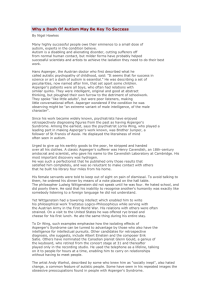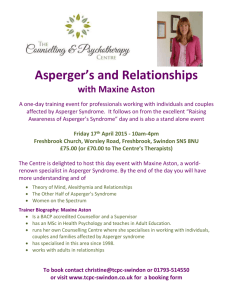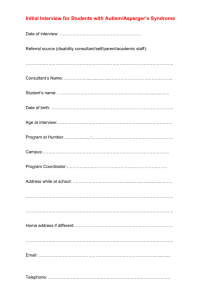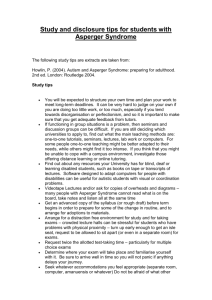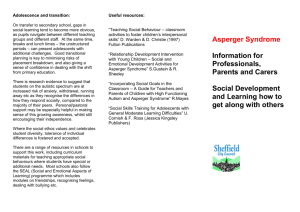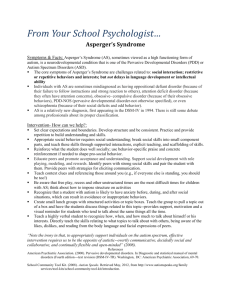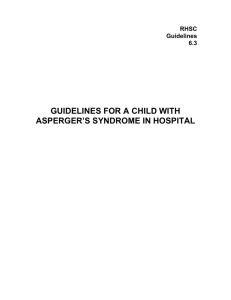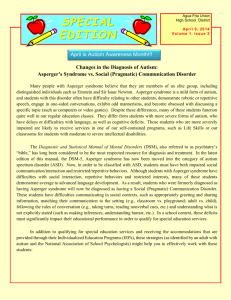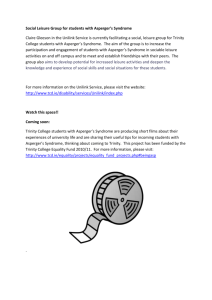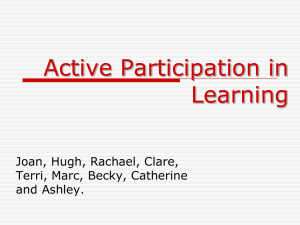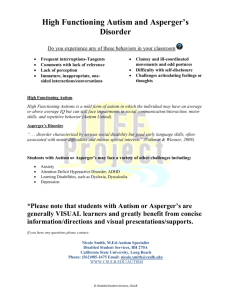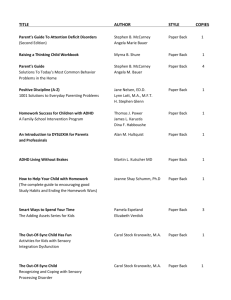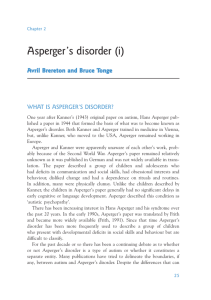nugent_asperger_example
advertisement
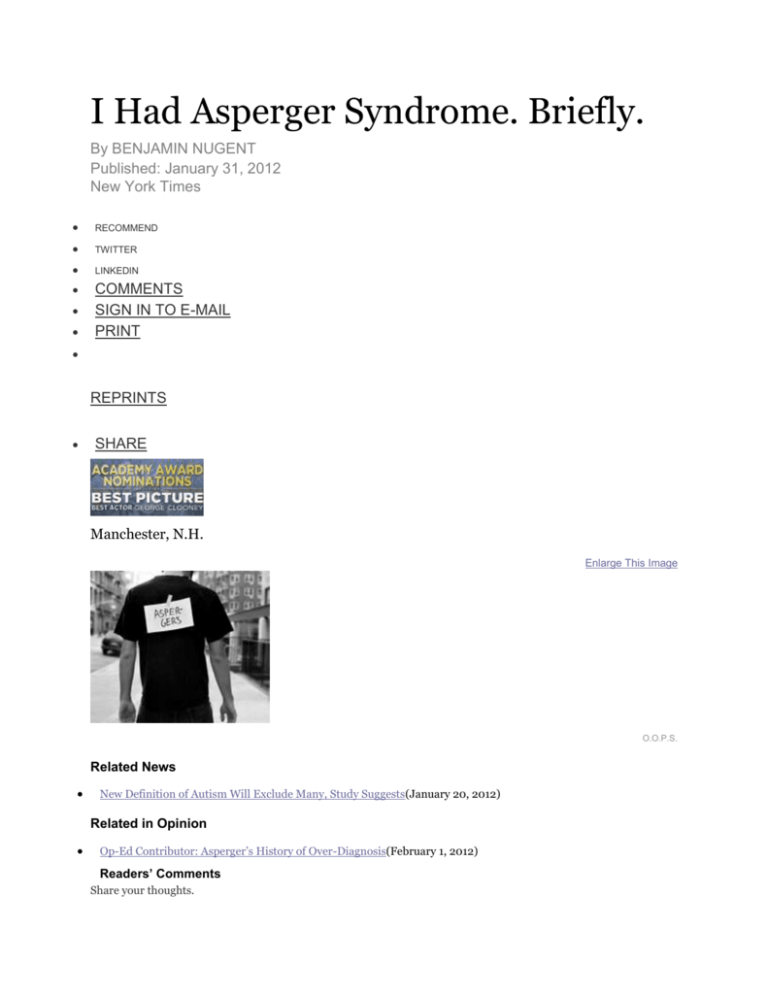
I Had Asperger Syndrome. Briefly. By BENJAMIN NUGENT Published: January 31, 2012 New York Times RECOMMEND TWITTER LINKEDIN COMMENTS SIGN IN TO E-MAIL PRINT REPRINTS SHARE Manchester, N.H. Enlarge This Image O.O.P.S. Related News New Definition of Autism Will Exclude Many, Study Suggests(January 20, 2012) Related in Opinion Op-Ed Contributor: Asperger’s History of Over-Diagnosis(February 1, 2012) Readers’ Comments Share your thoughts. Post a Comment » FOR a brief, heady period in the history of autism spectrum diagnosis, in the late ’90s, I had Asperger syndrome. There’s an educational video from that time, called “Understanding Asperger’s,” in which I appear. I am the affected 20-year-old in the wannabe-hipster vintage polo shirt talking about how keen his understanding of literature is and how misunderstood he was in fifth grade. The film was a research project directed by my mother, apsychology professor and Asperger specialist, and another expert in her department. It presents me as a young man living a full, meaningful life, despite his mental abnormality. “Understanding Asperger’s” was no act of fraud. Both my mother and her colleague believed I met the diagnostic criteria laid out in the American Psychiatric Association’s Diagnostic and Statistical Manual of Mental Disorders, Fourth Edition. The manual, still the authoritative text for American therapists, hospitals and insurers, listed the symptoms exhibited by people with Asperger disorder, and, when I was 17, I was judged to fit the bill. I exhibited a “qualified impairment in social interaction,” specifically “failure to develop peer relationships appropriate to developmental level” (I had few friends) and a “lack of spontaneous seeking to share enjoyment, interests, or achievements with other people” (I spent a lot of time by myself in my room reading novels and listening to music, and when I did hang out with other kids I often tried to speak like an E. M. Forster narrator, annoying them). I exhibited an “encompassing preoccupation with one or more stereotyped and restricted patterns of interest that is abnormal either in intensity or focus” (I memorized poems and spent a lot of time playing the guitar and writing terrible poems and novels). The general idea with a psychological diagnosis is that it applies when the tendencies involved inhibit a person’s ability to experience a happy, normal life. And in my case, the tendencies seemed to do just that. My high school G.P.A. would have been higher if I had been less intensely focused on books and music. If I had been well-rounded enough to attain basic competence at a few sports, I wouldn’t have provoked rage and contempt in other kids during gym and recess. The thing is, after college I moved to New York City and became a writer and met some people who shared my obsessions, and I ditched the Forsterian narrator thing, and then I wasn’t that awkward or isolated anymore. According to the diagnostic manual, Asperger syndrome is “a continuous and lifelong disorder,” but my symptoms had vanished. Last year I sold a novel of the psychological-realism variety, which means that my job became to intuit the unverbalized meanings of social interactions and create fictional social encounters with interesting secret subtexts. By contrast, people with Asperger syndrome and other autism spectrum disorders usually struggle to pick up nonverbal social cues. They often prefer the kind of thinking involved in chess and math, activities at which I am almost as inept as I am at soccer. The biggest single problem with the diagnostic criteria applied to me is this: You can be highly perceptive with regard to social interaction, as a child or adolescent, and still be a spectacular social failure. This is particularly true if you’re bad at sports or nervous or weird-looking. As I came into my adult personality, it became clear to me and my mother that I didn’t have Asperger syndrome, and she apologized profusely for putting me in the video. For a long time, I sulked in her presence. I yelled at her sometimes, I am ashamed to report. And then I forgave her, after about seven years. Because my mother’s intentions were always noble. She wanted to educate parents and counselors about the disorder. She wanted to erase its stigma. I wonder: If I had been born five years later and given the diagnosis at the more impressionable age of 12, what would have happened? I might never have tried to write about social interaction, having been told that I was hard-wired to find social interaction baffling. The authors of the next edition of the diagnostic manual, the D.S.M.-5, are considering a narrower definition of the autism spectrum. This may reverse the drastic increase in Asperger diagnoses that has taken place over the last 10 to 15 years. Many prominentpsychologists have reacted to this news with dismay. They protest that children and teenagers on the mild side of the autism spectrum will be denied the services they need if they’re unable to meet the new, more exclusive criteria. But my experience can’t be unique. Under the rules in place today, any nerd, any withdrawn, bookish kid, can have Asperger syndrome. The definition should be narrowed. I don’t want a kid with mild autism to go untreated. But I don’t want a school psychologist to give a clumsy, lonely teenager a description of his mind that isn’t true. Benjamin Nugent, the director of creative writing at Southern New Hampshire University, is the author of “American Nerd: The Story of My People
